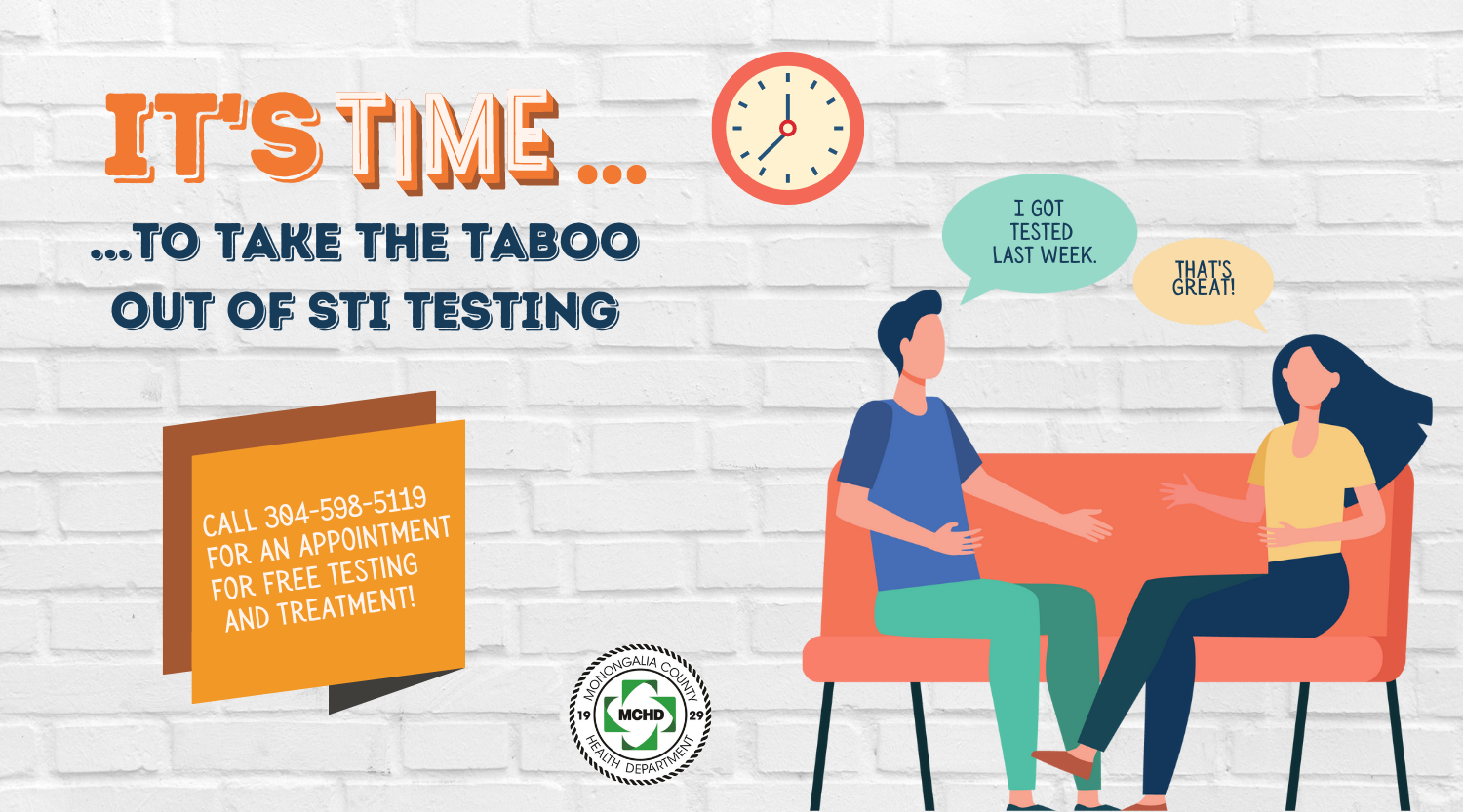It's time to take the taboo out of STI testing

Apr. 27, 2023
By Mary Wade Burnside
It’s time to normalize testing for sexually transmitted infections (STIs).
It’s a topic that few want to discuss. But we know it affects many.
After all, Monongalia County is practically the “Chlamydia Capital of West Virginia.” If not for Cabell County, our 501 per 100,000 rate for chlamydia would earn us that title.
But Cabell County comes in at 537.4 cases per 100,000, while No. 3, Kanawha County, had 447.3 cases per 100,000 in 2021, the year these statistics were posted by the West Virginia Office of Epidemiology and Prevention Services, part of the state’s Bureau for Public Health.
What’s more, 35.1% of all West Virginia chlamydia cases came from those three counties.
It would be easy to blame Morgantown’s status as a college town, and individuals ages 20-25 did make up 45% of the cases, according to the numbers.
But the fact is, people from a variety of demographics contribute to these statistics. Monongalia County Health Department offers free STI testing and treatment, so we know that many individuals take advantage of this service because it provides them with complete confidentiality. Which is, of course, one of the reasons we make that promise — to encourage people to get tested.
April is STI Awareness Month, so it’s a great time to talk about it. But the truth is, individuals should make the effort to have these discussions whenever the occasion arises, ideally before connecting in an intimate way.
Yes, in the words of the great Salt-N-Pepa, “Let’s Talk About Sex.” Or, perhaps, because this is a column, I will direct you to an online program that provides some guidelines and framework for this kind of conversation.
The American Sexual Health Association recently posted a podcast from NPR’s “Life Kit,” in which host Marielle Segarra and guest Dr. Evalene Dacker, a family physician and sex educator, present a few different scenarios for discussing STIs and sexual health with a potential partner.
Segarra notes that it’s best to do this before clothes come off, but as Monongalia County Health Department also says about flu vaccines, “It’s never too late.”
Podcast topics include issues such as using condoms as a barrier method to prevent STIs as well as potentially avoiding sex while under the influence of alcohol or other substances. Not surprisingly, the Centers for Disease Control and Prevention supports the first one and notes that substances can lower inhibitions.
Another consideration is how often to get tested for STIs. Dr. Dacker notes that “a lot of it has to do with how you are having sex with people.” CDC recommendations state that all sexually active women younger than 25 years should be tested for gonorrhea and chlamydia every year. For chlamydia in West Virginia, women make up 69.3% of those diagnosed. There are several reasons for that. Women are usually the ones who visit a health-care provider for birth control and also get regular Pap tests, and STI testing is usually done at the same time.
Also, pregnant people should be screened for syphilis, HIV and both hepatitis B and C early on, according to the CDC. And men who have sex with men should be tested once a year for syphilis, gonorrhea and chlamydia as well as HIV, and more frequently if they have multiple partners.
These are just some of the recommendations. And this doesn’t even cover the ABCs of STIs — the fact that chlamydia, gonorrhea and syphilis are bacterial infections that can be cured early on with antibiotics (and can go on to do damage if not treated quickly), while HIV, HPV and herpes are viral infections that can be suppressed by the immune system but not completely eradicated.
These are just more reasons to get tested early and often — in order to cure or begin to manage any STIs — for the health of you, your partner(s) and the entire community.
To make an appointment for free STI testing and treatment, call MCHD Clinical Services at 304-598-5119.
Mary Wade Burnside is the public information officer at Monongalia County Health Department.